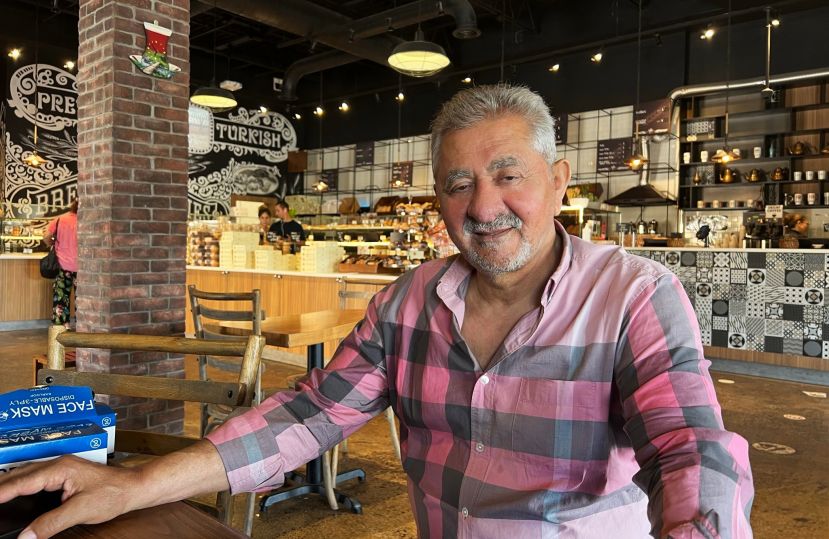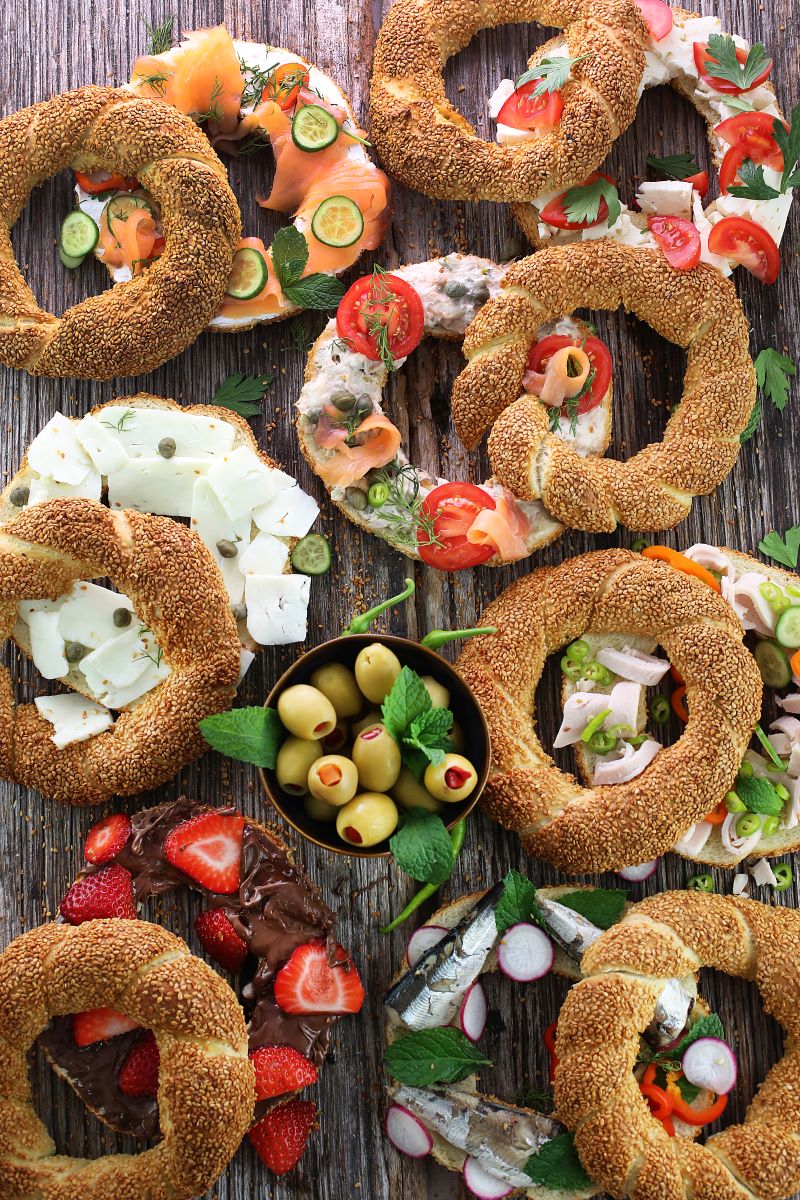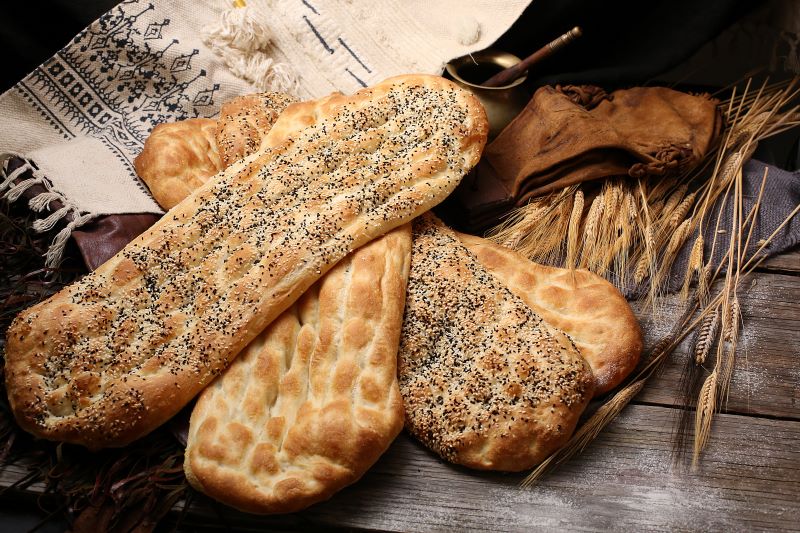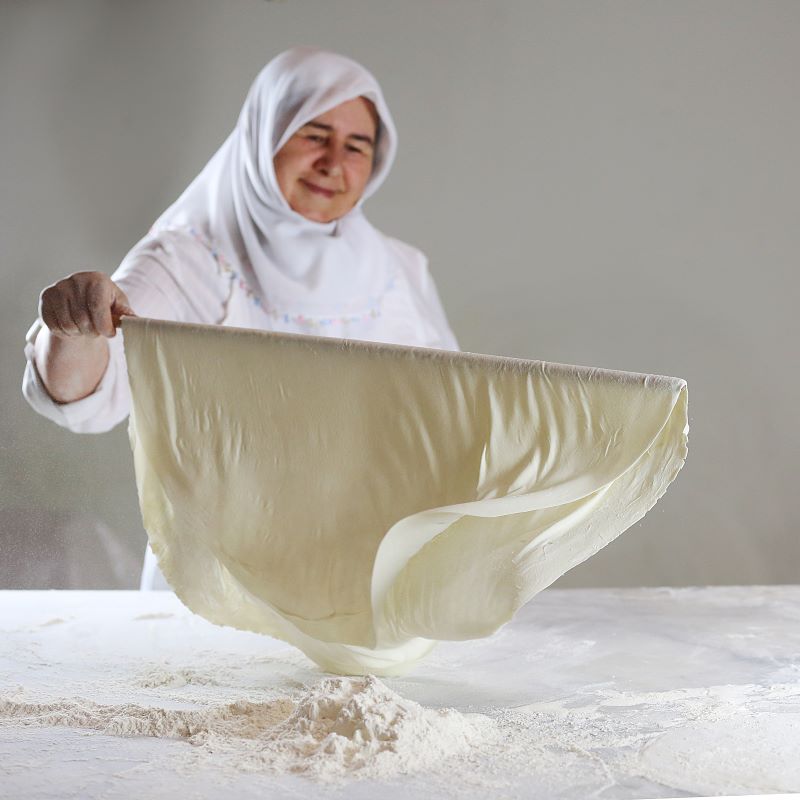‘Kadir Baba’ of Paterson
- Written by Admin TOA
- Published in Success Stories
 The first steps of Taşkın Bakery were taken in Wayne, NJ, at an Italian pizza shop, where Turkish pita was served to the neighboring Syriacs.
The first steps of Taşkın Bakery were taken in Wayne, NJ, at an Italian pizza shop, where Turkish pita was served to the neighboring Syriacs.
Afyonkarahisar is a Turkish city with one of the largest migration rates in the country. In Emirdağ, the city’s most populated district, migration to foreign countries mostly began in the 1960’s. It is estimated that the number of migrants from Emirdağ, who mainly moved to European countries, especially to Belgium, as laborers, has now reached almost 150,000. And, the population of migrants from Emirdağ living in Belgium is believed to be around 120,000. One of the migrants from Emirdağ whose migration route led to USA is Kadir Taşkın. Now a resident of Paterson, Taşkın is referred to, by many, as ‘baba’, meaning, ‘father.’ In 1989, just like his countryfolk, Taşkın had also left his town to migrate to Europe. He had a visa both from Germany and the USA. A friend of his suggested he would first move to the USA, and leave he wouldn’t like it. Following along with his friend’s advice, Taşkın moved to Paterson, NJ in 1989. “I have been here since the first day I migrated and I haven’t left at all,” he says.
Taşkın is the second son of his parents, who have 4 daughters and 3 sons. He was born in Emirdağ’s Gökçekaya (Geynik) town in 1955. His family moved from their town to the district center in 1965. Taşkın started earning his first income by unloading trucks carrying bricks. He got married in 1979 and had his first child the next year.
When asked about what he did first when he moved to Paterson, Taşkın replies with a witty tone and says, “I worked as a doctor, and, then, as a lawyer. Well, of course not! What could I have done? I watched people. I realized that there was a coffee culture at place but the same wasn’t there in terms of food. The first day I arrived, I was taken to a place for a painting job. I never did that again. I also never worked at a gas station. After I noticed the gap in the food sector, I decided to run my own business in that field.”
 OPENED CAFÉ ISTANBUL IN 1990
OPENED CAFÉ ISTANBUL IN 1990
Taşkın opened the restaurant named Café İstanbul in Paterson, in 1990. At the beginning, the basement of that venue served as a dormitory for so many people coming to Paterson. Taşkın mentions those days, saying, “Those who would arrive by ship and others landing in JFK used to call me right away. And, we used to pick them up from the airport or wherever they were at. Many of them did not know the language. Since most of the newcomers used to stay at our venue, whoever needed help with work used to stop by our place and get them as laborers. All the newcomers stayed at that place for free. It was called the ‘Father Kadir’s farm’ but I eventually had a bankruptcy in 1995.”
At one point, Taşkın also made Turkish baklava and sold them to supermarkets in Brooklyn. Then, he went bankrupt at that business as well. Then, he started working at an Italian pizza shop at the Willowbrook Mall of Wayne, New Jersey. A young girl, aged 13 or 14, who came to the pizza shop, changed Taşkın’s route in his business life.
SYRIACS DEMANDED HE BAKED
“One day, a little girl came to the pizza shop. I thought to myself, ‘She looks Turkish.’ She ate her pizza. Then, as she was about to leave, I asked her where she was from. She said ‘I’m Turkish.’ I said, ‘What are you doing here by yourself?’ And, she replied, ‘My dad works here, too.’ It turned out that her father was a member of the local Syriac community working in the jewelry business at the mall. After she told her father that she met another Turk at the mall, her father and I also met. One day, her father asked me if I could bake Turkish pita with minced meat. I said, ‘Yes.’ Then, another person asked for Turkish bagel (simit), and, later, somebody else wanted lahmacun. In time, I found myself cooking Turkish bakery products for our friends in the Syriac community,” he says.
 After seeing the high demand, Taşkın asked the pizza shop owner for permission to work at the shop at nights to bake Turkish pastry items. So, this is how the first steps of Taşkın Bakery were taken, at an Italian pizza house, through serving of pita to Assyrian neighbors. Taşkın would bake the pastry at night and distribute them to the other shops during daytime. After having worked at that pizza store for about a year and a half, he started working at another shop, delivering bread. He used to buy bread from an Arabic bakery, which used to operate at the building that is now called Taşkın Bakery, and deliver it to customers. At one point, the owner of the Arabic bakery made an offer to Taşkın for him to rent part of the shop to bake Turkish bread. So, Taşkın rented a 20 square meter space in 1997 for 400 dollars. But he did not even have money to buy flour. He baked his first bread there with some flour that he lended. He sold around 35 to 40 loaves of bread on his first day. Once he earned some money, he bought 10 bags of flour. He tells his feelings about that day: “When I bought the flour, I sat down in my car and cried. And, I said to myself, ‘America! I am here, too.’” Taşkın and his wife continued their homemade bread business together, without having any machinery. He says, “We used to work day and night.”
After seeing the high demand, Taşkın asked the pizza shop owner for permission to work at the shop at nights to bake Turkish pastry items. So, this is how the first steps of Taşkın Bakery were taken, at an Italian pizza house, through serving of pita to Assyrian neighbors. Taşkın would bake the pastry at night and distribute them to the other shops during daytime. After having worked at that pizza store for about a year and a half, he started working at another shop, delivering bread. He used to buy bread from an Arabic bakery, which used to operate at the building that is now called Taşkın Bakery, and deliver it to customers. At one point, the owner of the Arabic bakery made an offer to Taşkın for him to rent part of the shop to bake Turkish bread. So, Taşkın rented a 20 square meter space in 1997 for 400 dollars. But he did not even have money to buy flour. He baked his first bread there with some flour that he lended. He sold around 35 to 40 loaves of bread on his first day. Once he earned some money, he bought 10 bags of flour. He tells his feelings about that day: “When I bought the flour, I sat down in my car and cried. And, I said to myself, ‘America! I am here, too.’” Taşkın and his wife continued their homemade bread business together, without having any machinery. He says, “We used to work day and night.”
When the Arabic bakery went bankrupt and had to evacuate the space, Taşkın rented the venue on September 11, solely for Taşkın Bakery. In time, their business grew further and the daily output double, and, then, tripled. He ended up buying the store, of which he had initially rented, for 400 dollars, only a 20 square meter. Then, a café area was added. Since then, their business has been operating at a 20,000 square meter space and it also provides employment to 80 people. Including his 5 daughters, Taşkın’s whole family works at the bakery. When asked whether he finds working with family members a difficult task, Taşkın says, “When you are working together with your family like this, you need to at times act deaf and at times blind.” He adds: “Some like fishing, some like playing golf. I enjoy serving the community.”

Naciye Taskin was helping her husband at the beginning. (Photo by Koray Kasap)
Taşkın also has American customers who have been loyal since day one. He says, “There have been times when some of them would hug me and say, crying, ‘Bravo! You have come along this way, step by step, ‘till this day!’’
Latest from Admin TOA
- The Young Star of the Gastronomy World Is The New Owner of Samdan
- From Dream to Reality, from Muş to Illinois: Zellano Home, the Largest Furniture Store Under One Roof in the USA!
- 300 migrants to be housed at shuttered Catholic church on Northwest Side in Chicago
- Turkish Philanthropy Funds Hosts 2024 Innovation and Social Impact Summit
- Turkish Stand-Up Sensation Hasan Can Kaya Embarks on U.S. Tour with Art Evi Production, in212 Production, and TAAS New York
